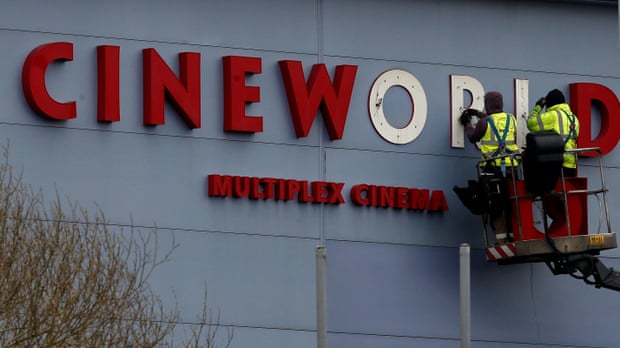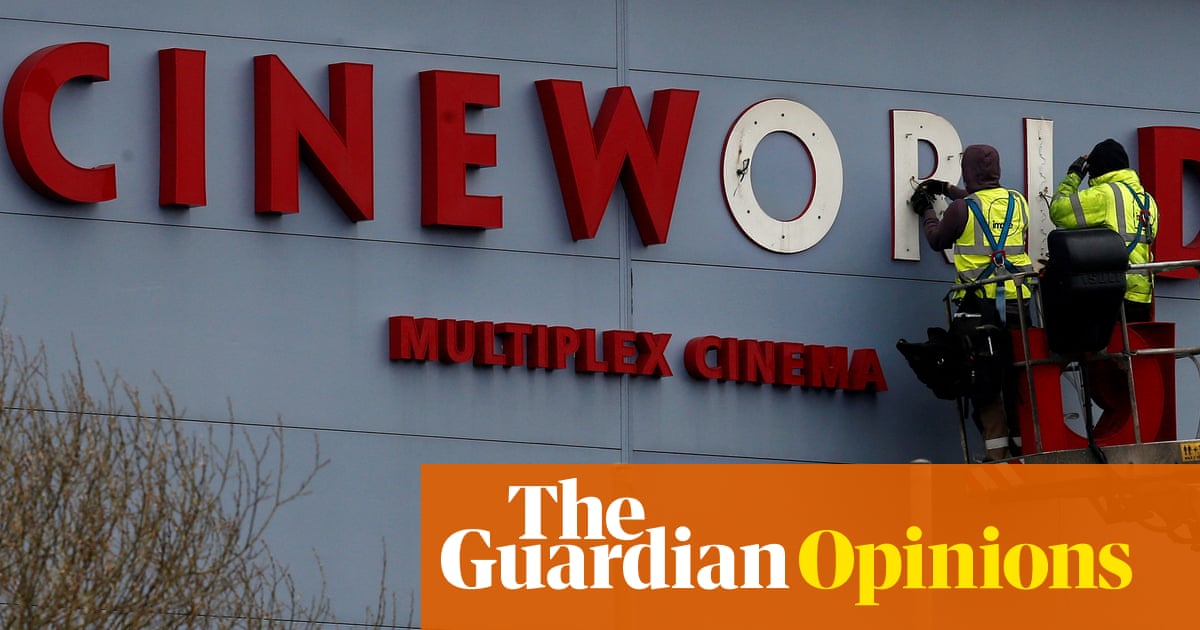Cineworld’s story has shareholders watching through their hands

The cinema chain made a high-risk bet on audiences flooding back but is now forced into painful restructuring

One can’t call it a major twist in the plot in the disaster movie for investors that is Cineworld, owner of 750 cinemas in 10 countries. A possible “comprehensive deleveraging transaction” – in other words, a hefty whack for shareholders – has been a threat ever since Covid arrived.
Even pre-pandemic, the company was up to its neck in debt, having been run as an acquisition machine by chief executive Mooky Greidinger, who controls a fifth of the shares with his family. At the last count at the end of 2021, the debt figure was $4.8bn (£4bn), ignoring lease liabilities, which is one hell of a sum when revenues for the year were only $1.8bn.
One can, though, grumble about the narration from the boardroom. As recently as March, Greidinger was whistling cheerfully about how prospects were improving after all the temporary Covid closures. He was “encouraged” by recent trading and the business was “well positioned” to benefit from a “highly anticipated” schedule of new releases, such as Top Gun: Maverick.
And now? Admissions are below expectations and that bountiful slate of new releases is deemed “limited” until November. Thus the talks with lenders that could deliver “very significant dilution” for current shareholders. Yes, that’s what happens with debt-for-equity swaps, as seen at rival Vue recently, or similar financial shake-ups. Cineworld’s shares plunged 60%, making the equity in the world’s second-largest cinema chain worth just £115m.
In one sense, one can admire Greidinger’s ability to maintain suspense this long. Last year he secured various covenant waivers on debt, negotiated with landlords and raised $213m by issuing convertible bonds. It was done even as Cineworld disputed with Cineplex, the Canadian chain it backed out of buying after Covid struck, an affair that has led to a near-$1bn award (being appealed) against the UK-listed company.
With hindsight, though, Cineworld should have bitten the bullet on a financial restructuring far earlier. Last summer, the shares were still 60p and shareholders had more negotiating clout. Instead, Greidinger took the high-risk route of betting on recovery, persuading other investors to back a bonus scheme that would pay him and his brother £33m apiece if the shares could return to 190p within three years. Top marks for optimism, but the price is now 8p. The maverick approach doesn’t always work.
Raise the stakes
Signs of intent from the Gambling Commission: it has hit Entain, owner of Ladbrokes and Coral, with a record £17m penalty even though the company’s multiple failures to act responsibly and conduct proper anti-money laundering checks, gruesome as they were, were probably not the worst we’ve seen in the UK’s betting industry.
But, as Andrew Rhodes, the commission’s chief executive, pointed out, Entain is not a first-time offender. The company, then called GVC, had to pay £5.9m as recently as 2019, which should have served as a sharp prod to get its act together pronto. Note, too, that the failures referenced in Wednesday’s settlement happened in 2019 and 2020, when the industry knew the gambling review was happening.
Then came the commission’s interesting bit. “Further serious breaches will make the removal of their [Entain’s] licence to operate a very real possibility,” said Rhodes.
Does he mean that literally? The commission has the power to remove a licence but, for a company of Entain’s size, the sanction would imply thousands of job losses and, presumably, a mighty legal battle. One suspects the possibility is remote in reality. It is hard for a regulator to jump from a £17m fine – equivalent to a day and half’s global takings for Entain – to full-on yanking of the operating licence.
But the regulatory direction of travel seems correct. If a household-name gambling giant continues to fall short, the regulator must get heavier, regardless of what happens with legal reforms, currently stalled by the Tory leadership show. As a next step, how about a ban on it taking bets in the UK for a week? The financial impact and the public shaming would be more severe. Raise the stakes for persistent non-compliance – and keep raising them.
The man for United?
Elon Musk’s latest unfunny gag was one about buying Manchester United. It wasn’t obvious how this “joke” was supposed to be hilarious but, as a serious commercial idea, a takeover has a lot going for it.
Man Utd is worth $2.2bn on New York Stock Exchange; the club will almost certainly exist 100 years from now; and a new owner surely couldn’t run it any worse than the Glazer family has managed. Versus Twitter, which Musk wanted to buy for $44bn until he didn’t, it’s a bargain.
